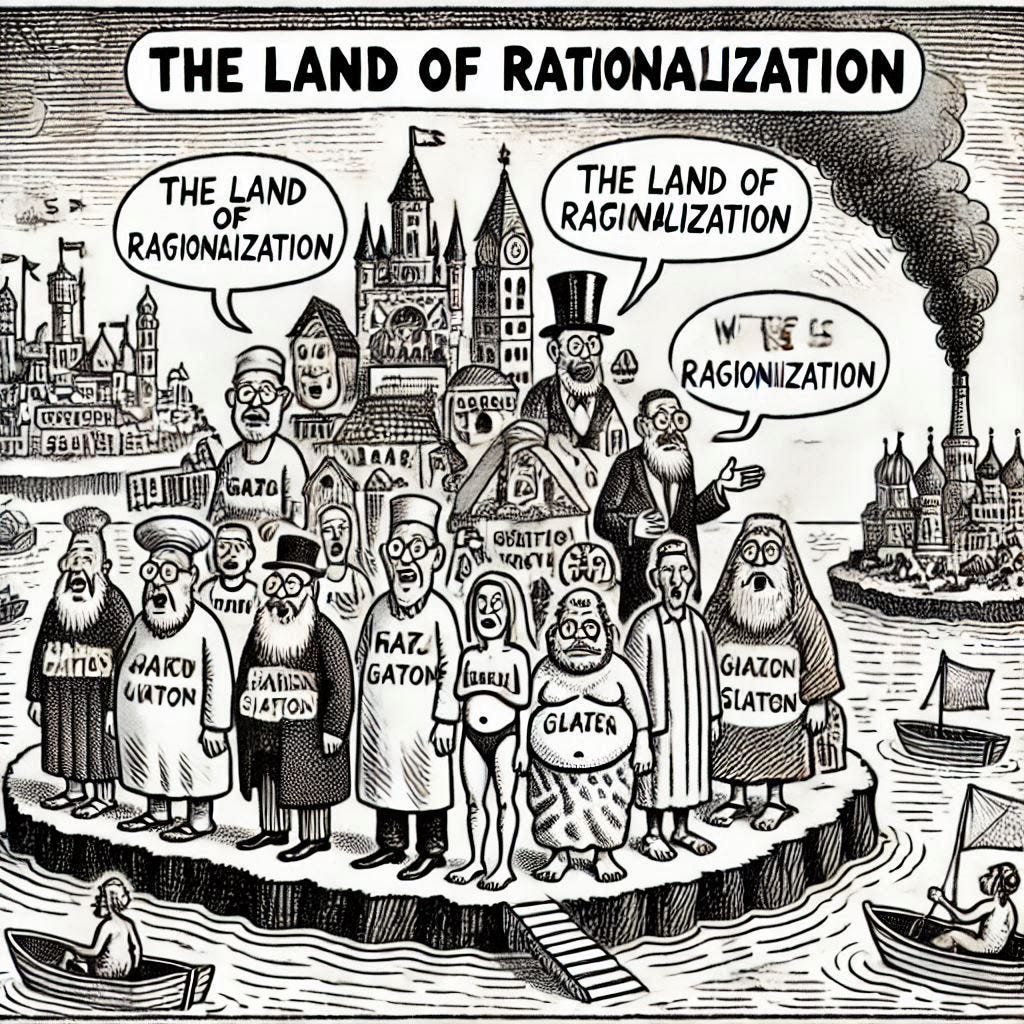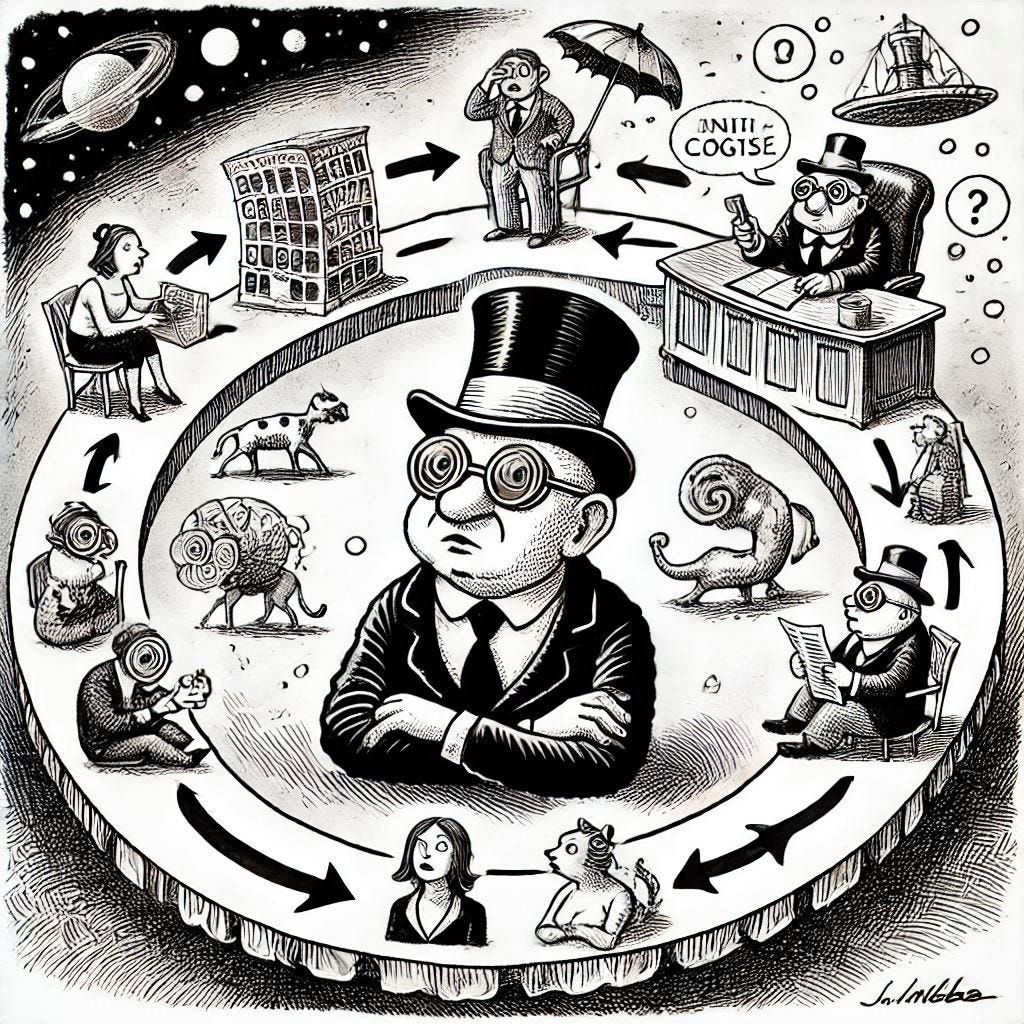The Land of Rationalization
In a dream...or not.
Once upon a time, in the Land of Rationalization, there was a small town called America. This idyllic community was home to a large population of Christian believers who prided themselves on their unwavering faith and determination to defend it at all costs.
One bright sunny day, Brother Mark, the most devout and logical resident of America, found himself in an unexpected intellectual battle with his new neighbor, a non-believing freethinker named Jeremy.
Jeremy had recently moved into town from the forbidden land of Reasonopolis. His arrival was met with curiosity by the America residents, but also with a hint of fear and suspicion. This stranger dared to question the beliefs that shaped their entire way of life – the existence of God and the authority of the Bible.
During one particularly heated discussion between Brother Mark and Jeremy, the topic of why God reveals himself to some people while keeping silent towards others came up. Brother Mark was prepared for this line of questioning, having spent years perfecting his rationalization skills.
"God has a plan," he began confidently. "We may not know exactly what that plan is, but we have faith in it."
Jeremy raised an eyebrow and asked, "How do you know God has a plan?"
Brother Mark's heart didn't skip a beat as he countered with conviction, "The Bible tells us so."
"And how do you know that the Bible is true?" Jeremy inquired.
Brother Mark was ready for this question too. He had heard it many times before. "Because it was inspired by God," he replied.
Jeremy remained unconvinced. "How do you know it was truly inspired by God?"
"It says so right there in the Bible itself," Brother Mark answered triumphantly, proud of his mastery over circular logic.
This exchange left Jeremy amused and a little impressed by Brother Mark's ability to rationalize his beliefs. However, he wasn't quite ready to concede defeat. He wanted to explore another aspect of Christian rationalization – its bad argument methods or fallacies used in justifying the faith.
Jeremy suggested several scenarios for why God might not reveal himself to some individuals. Perhaps He is mysterious and enjoys keeping secrets, or maybe he wants believers to prove they're worthy of his love before revealing himself to them.
Brother Mark listened patiently as Jeremy presented these ideas, but remained steadfast in his belief that the only true explanation for this phenomenon was the existence of God's grand plan.
Their debate eventually came to an end, leaving both men feeling a sense of accomplishment. Brother Mark had successfully defended his faith through rationalization and circular logic while Jeremy felt he had planted some seeds of doubt in the devout Christian's mind.
In the days that followed, however, several residents from America approached Brother Mark with questions about their faith. It seemed as though the ideas Jeremy introduced to this small Christian community had begun to stir curiosity and doubts among its residents.
As for Brother Mark, he realized that although his rationalization skills were strong, they might not be enough to prevent his community from seeking deeper understanding and challenging their long-held beliefs. In the Land of Rationalization, it seemed change was in the air, and only time would tell what this newfound curiosity would bring to America.




